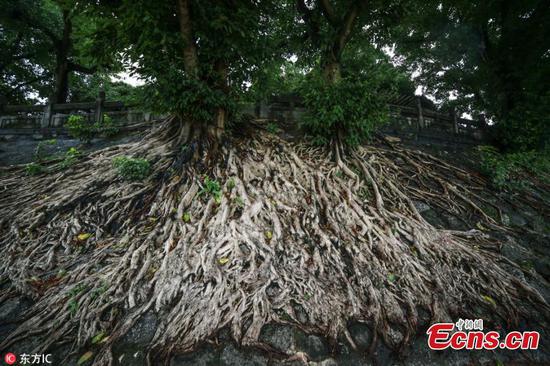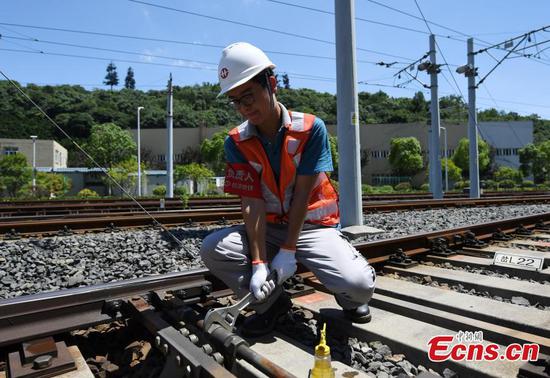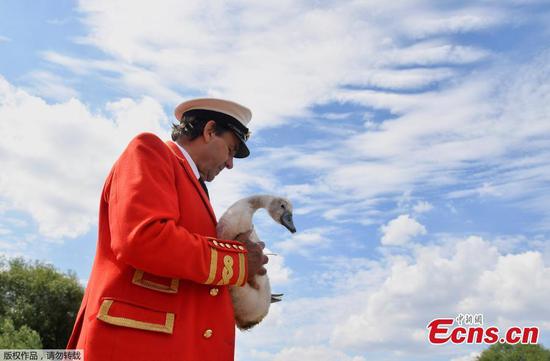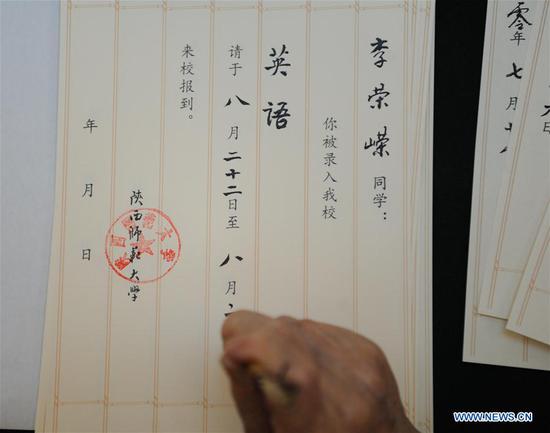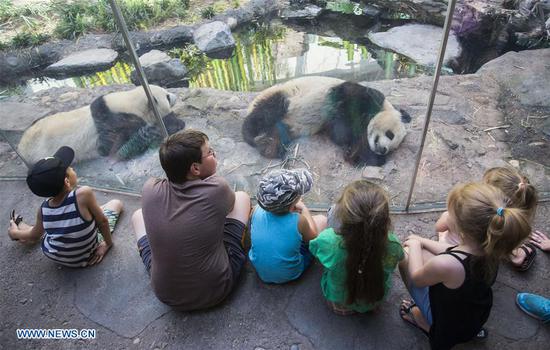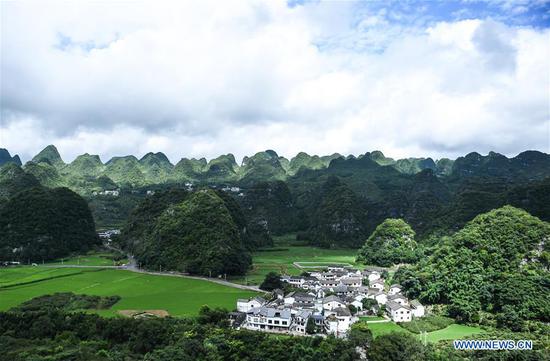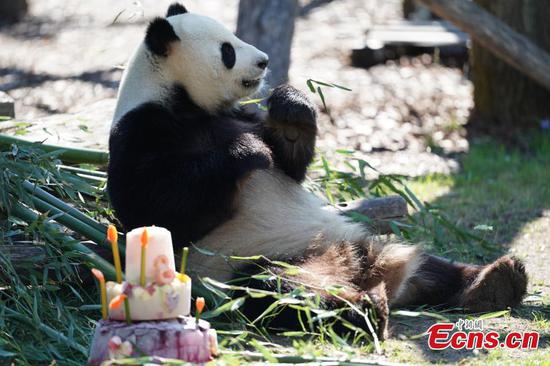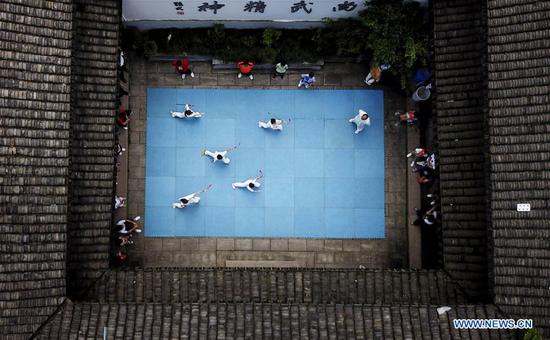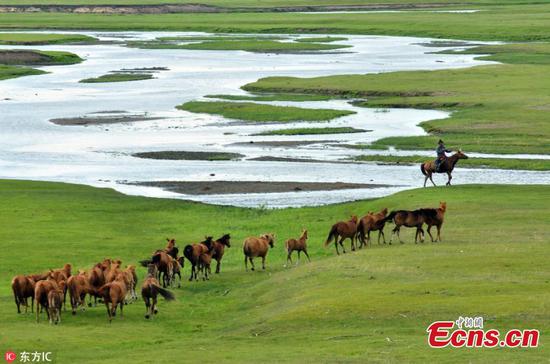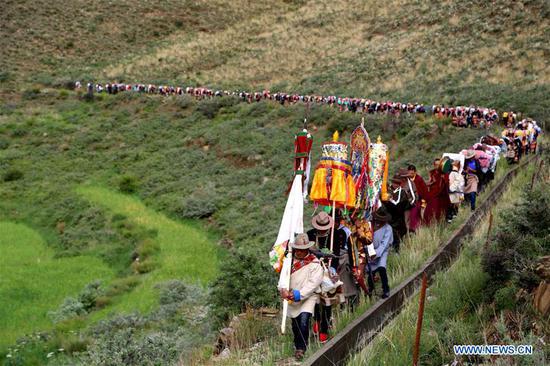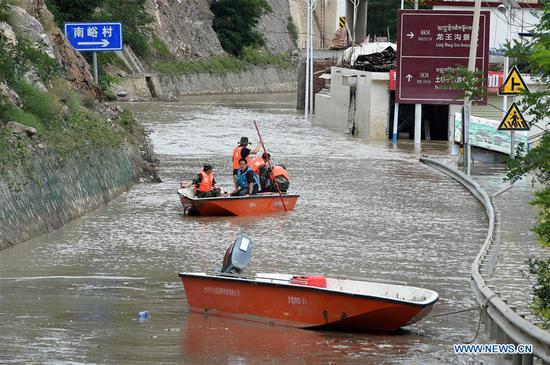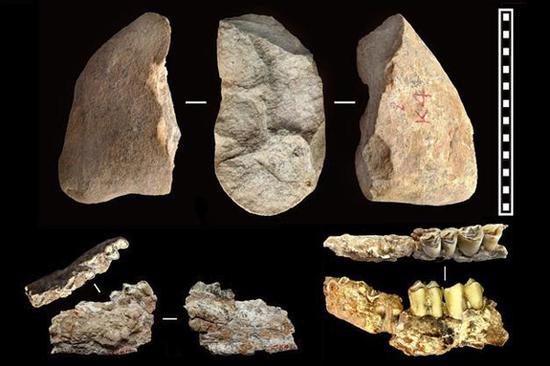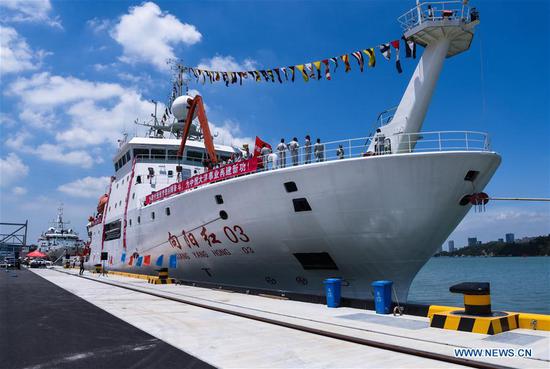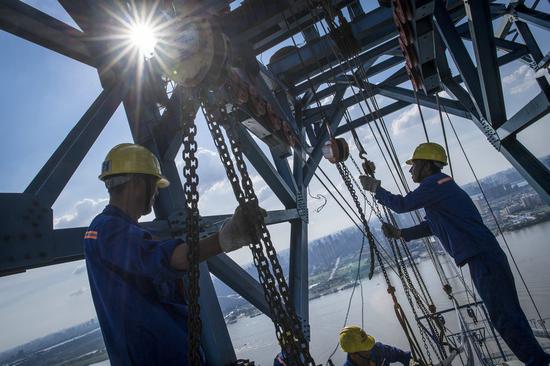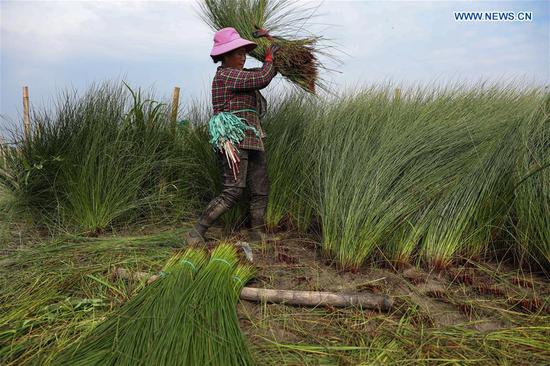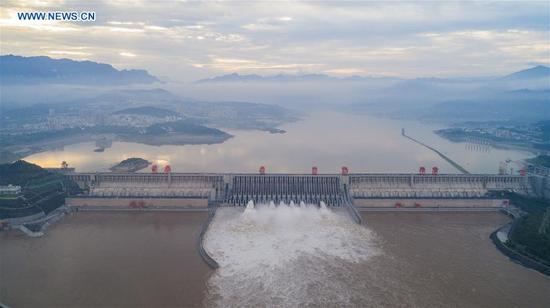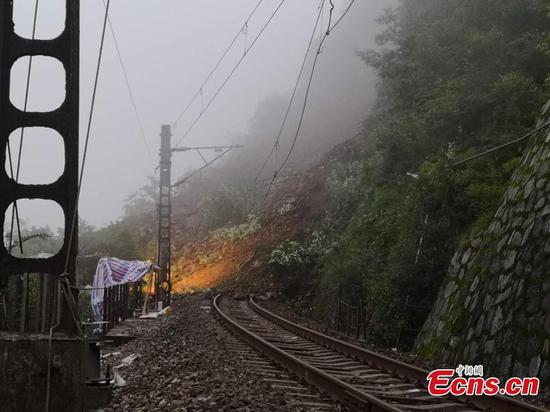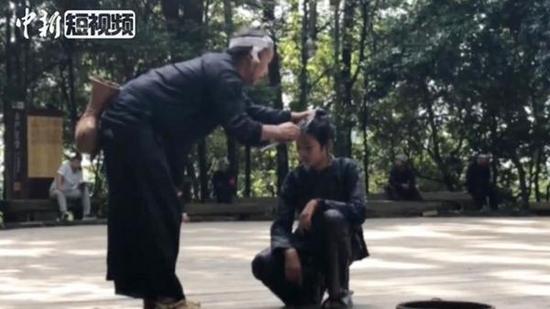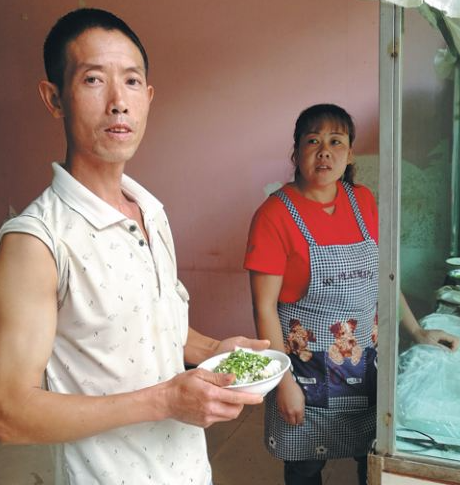
Xu Youxing (left) and his wife sell cold rice noodles and dumplings at their family-run snack bar in Danxia town of Panzhou, Guizhou province. (Photo by Jiang Xueqing/China Daily)
Sitting at the foot of Danxia Mountain, Danxia town in Guizhou province is undergoing housing renovation and street reconstruction as the local government is trying to develop the town into a recreation, tourism and culture resort by 2021.
The mountain, best known for its Buddhist Huguo Temple with a history that can be traced back to the Ming Dynasty (1368-1644), is recorded in the travel diaries of Xu Xiake, a distinguished travel writer and geographer who is regarded as China's Marco Polo.
The local government is making great efforts to adjust the drivers of economic growth from low-profit traditional farming, such as growing corn, to the service industry by developing tourism with the help of commercial banks, said an official of Danxia town in the city of Panzhou.
With government recommendations based on their credit information, 95 rural families in Danxia town passed pre-loan investigations conducted by Agricultural Bank of China. Each of the families obtained a three-year loan of 80,000 yuan ($11,970) without collateral at a lending rate of 6.18 percent, which is 30 percent higher than China's three-year benchmark lending rate, to rebuild or extend their houses.
Xu Youxing, 41, added another floor to his house and expanded his snack bar business. He now uses the entire first floor to sell cold rice noodles and dumplings. The small business is estimated to bring him an annual income of about 30,000 yuan.
Before the expansion, he ran the snack bar from the front half of his house, which was unsanitary as his family were living in the back. The problem no longer exists as the family now lives on the second floor.
"Enlarging the house significantly improved my family's living conditions," Xu said.
Considering renting out part of his house, Xu said he does not feel stressed about repaying the loan.
The Panzhou government will repay the interest for the 95 families, including Xu's, during the first two years and will refund 20 percent of the principal, or 16,000 yuan, to each family after it pays off the loan. To cover potential risks, the government also set up a risk compensation fund of 20 million yuan in case of defaults on the loans.
Starting from the end of 2014, Agricultural Bank of China has granted loans of more than 10 billion yuan in Guizhou to support a countryside improvement project, including upgrading the roads, power grid and living environment, said Fang Xinshun, vice-president of the bank's subbranch in Panzhou.
"Closely related to China's rural vitalization strategy and industrial restructuring, the project is aimed at improving the quality of life and environment for the people," Fang said.









